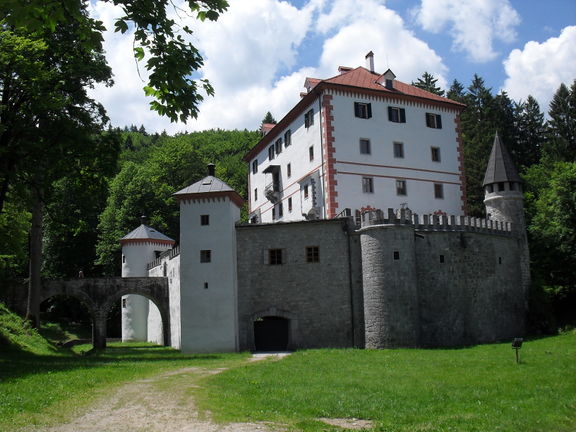Difference between revisions of "Snežnik Castle Museum"
Janez Premk (talk | contribs) |
Janez Premk (talk | contribs) |
||
| Line 1: | Line 1: | ||
{{Article | {{Article | ||
| status = WRITING TOPROOFREAD NIFERTIK! | | status = WRITING TOPROOFREAD NIFERTIK! | ||
| − | | maintainer = | + | | maintainer = Ivan Pirnat |
}} | }} | ||
{{Infobox | {{Infobox | ||
Revision as of 10:44, 26 February 2010
Prince Georg Schönburg-Waldenburg had several additions made to the castle and gave it the appearance it has preserved to the present day. In 1860-1864 a third floor was added, a robust round tower at the back, a cellar and on top of it a terrace with battlements and a small round, conical tower. This new structure was connected to the walls which enclose the inner courtyard. At the same time the exterior was altered and the interior was also renovated and embellished with precious furniture and other furnishings to serve the purposes of the owner. Prince Georg also had an outbuilding added and arranged the surrounding park on the pattern of contemporaneous English parks.
Snežnik Castle is one of the few castles in Slovenia in which the entire inventory of the last owners, the Schönburg-Waldenburgs, has been preserved. Its interior furnishings date mainly from the mid-late 19th century and include furniture, tableware, old paintings, wall tapestries, books and objects for everyday use. Noteworthy artefacts on display within the building include the four Roman tombstones built into the castle wall (1st century CE), a German Protestant Bible dating from 1735 and an original map of the Duchy of Carniola from 1744 made by Janez Dizma Florjančič. Amongst the exhibited furniture special attention should be paid to the Egyptian Room, furnished with Salon furniture from the Egyptomania style popular in the early 20th century.



